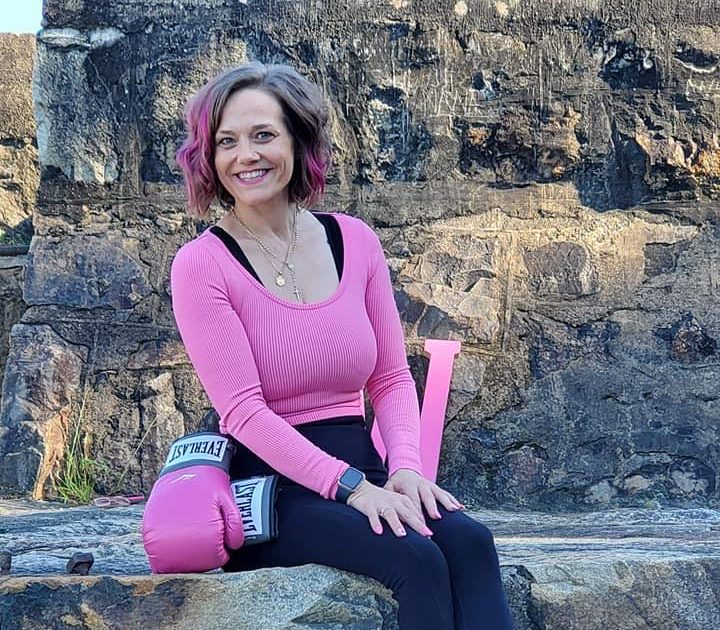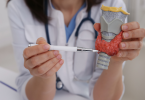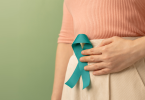A big player in cancer prevention is doing routine body checks, but what do you do if you find a questionable mole or lump and your doctor does not listen?
This was Laura Orange’s reality for nine long months.
“I was just so naïve; I’m glad I kept pushing and got the answers that I deserved because I wouldn’t have made it to 40,” said Orange about her journey.
Orange felt a lump in her breast one day and went straight to a doctor to get a professional opinion and learn what steps she needed to take to have it taken care of. She was not expecting her doctor to ignore her concerns about possible breast cancer and send her home with an antibiotic.
“She said the antibiotic would break up the tissue and make the lump disappear,” said Orange.
The lump did not disappear; it grew.
Each time Orange went back to the doctor, her concerns about the lump were ignored. Orange found herself in a difficult position, as she was not yet 40 and her insurance would not cover a mammogram.
A mammogram is a low-dose x-ray of the breast that can find breast cancer years before physical symptoms develop. The current age to begin mammograms is age 40, so often times they are not covered by insurance unless the patient has a history of breast cancer or has the BRCA1 or BRCA 2 gene mutation based on genetic testing.
Orange went to AU Imaging for a second opinion, where the doctor confirmed her concerns were correct; she had cancer at 35 years of age.
“It took me nine months, but I got it.”
Orange came to the Georgia Cancer Center for a more specific diagnosis. She saw Jordan Ciuro, MD, who at the time was a part of the breast cancer team here at the GCC and Wellstar MCG Health. Ciuro broke the news to Orange that she had Stage Four Metastatic breast cancer. Metastatic cancer is cancer that has spread beyond the initial organ or area of the body. In Orange’s case, it had spread to nearby lymph nodes.
“I think I froze. I don’t even think it registered. I mean, I heard the words. I can clearly still see Dr. Cuiro’s face. I felt like she was going to cry before I could cry.”
At first, Orange was not going to tell her friends or family. She had just moved to Georgia to be closer to her brother at Fort Eisenhower, however, he was on a deployment in Africa, while the rest of her family were back home in Illinois. She believed that she could grin and get through the treatments and beat cancer.
In Orange’s mind, all cancers were almost identical, minus what parts of the body they affected, and she was determined to prove the doctors wrong and be cured.
“Dr. Alicia Arnold shared her wonderful story of beating breast cancer, which gave me immediate hope. I mean, the fact that she’s already beat cancer, I was like, yeah, me too. I’m going to be right there with your girlfriend.”
Orange then met with Andrea Rhoden, the nurse navigator for the breast cancer team. Rhoden sat her down and gave her a binder with all the information that Orange needed to understand her situation. While she still had the mindset that she was going to be cured, she realized the gravity of her situation and called her mom, devastated.
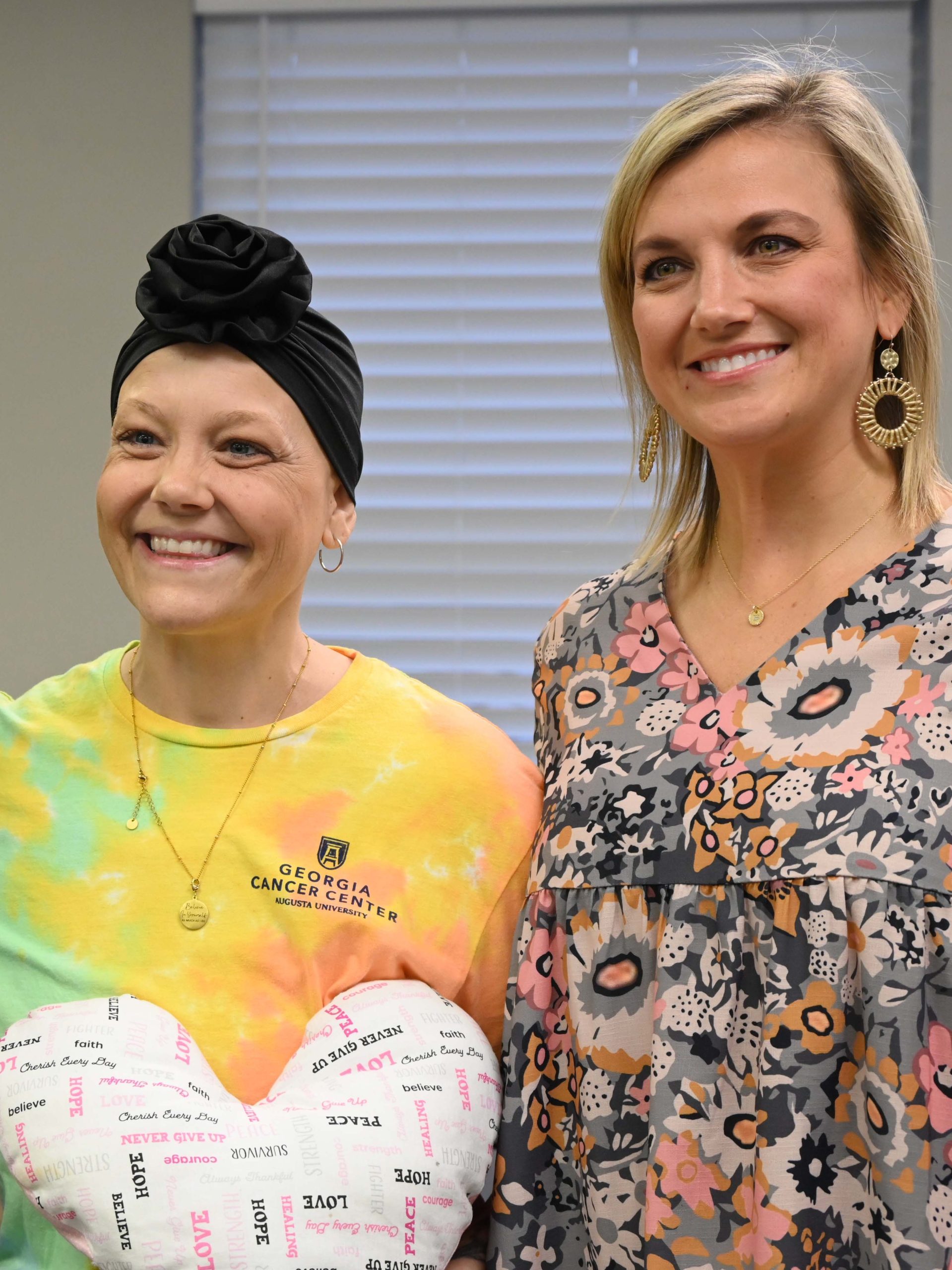
“I never thought at my young tender age that I would be in the predicament that I am.”
Orange received her diagnosis in 2022 and since then she has been an advocate for young women to not only take their breast health seriously but also expand their cancer knowledge.
She believes the first step in cancer prevention is knowledge and awareness. Knowing what symptoms and signs to look for, how to self-examine yourself, and knowing your family’s health history can save a person’s life. If you are unsure how to perform a self-examination to check for breast cancer, speak to your doctor or visit the National Breast Cancer Foundation website for a handy guide.
When hit with a cancer diagnosis, it can be very easy to slip into a dark mindset. At first, Orange struggled with reaching out for support and did not want to burden those she cared about. She soon learned however that the love and support of her family, friends, and care team here at the GCC, gave her the strength to see her situation in a positive light.






“I’ve never said why me, and I never will. I know why me; I know my journey has to save somebody.”
Orange has been a speaker at multiple breast cancer support groups, such as the Georgia Cancer Center’s Breast Cancer Survivor Community Social and the Healing Hearts Ministry. While her story is emotional and can be difficult to tell without shedding a tear, Orange does it with a smile so that others can learn the importance of advocating for one’s health.
“The thing with Laura that just is so remarkable is despite getting bad news or news you just don’t want to hear, she never stops smiling. I find her extremely inspiring to myself and to other patients,” said Alicia Arnold, DO, an associate professor of surgery and the Breast Program director at the Georgia Cancer Center and Wellstar MCG Health. “She continues to keep on keeping on despite how difficult her journey has been. We are just so lucky to have her in our lives.”
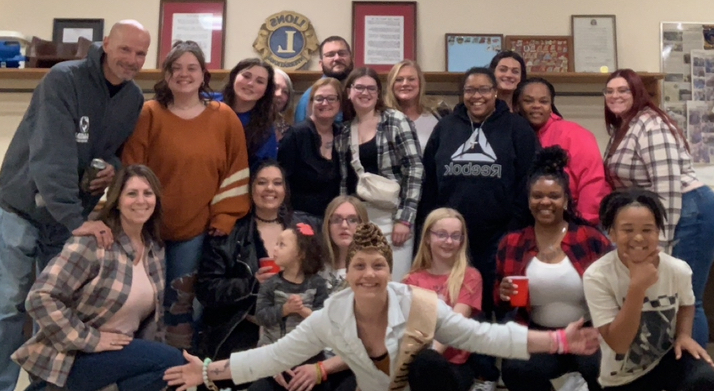
If you or someone you know is undergoing a breast cancer diagnosis, we encourage you to attend a meeting with our Breast Cancer Survivor Community Social group. If you would like to schedule an appointment with our Breast Cancer Care team, you can visit our website here.
Never be afraid to raise health concerns with your doctor and to seek out the care you deserve.



